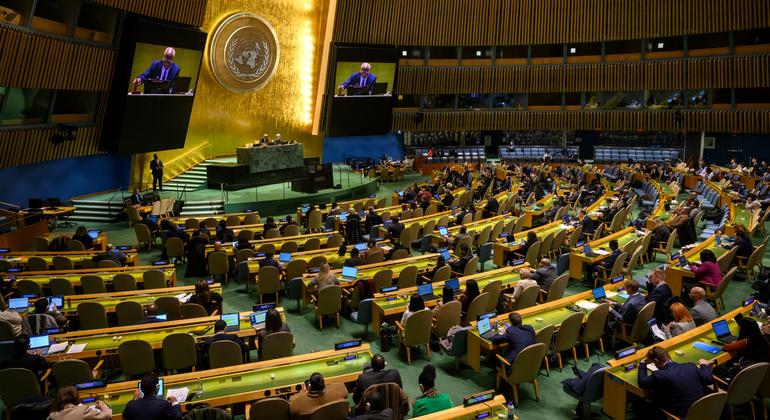The United Nations has reached a significant milestone in the fight against cybercrime with the adoption of a new legally binding treaty. The agreement, which culminated after a five-year effort by UN Member States, civil society, information security experts, academia, and the private sector, marks a historic moment in international criminal justice. The treaty, known as the Convention against Cybercrime, is the first of its kind to have been negotiated in over 20 years.
UN Secretary-General António Guterres welcomed the adoption of the Convention, stating that it demonstrates the success of multilateralism during challenging times. The treaty reflects the collective will of Member States to promote international cooperation in preventing and combating cybercrime. In a statement issued by his spokesperson, the Secretary-General praised the Convention for creating an unprecedented platform for collaboration in the exchange of evidence, protection for victims, and prevention, all while safeguarding human rights online. He called on all States to join the treaty and implement it in cooperation with relevant stakeholders to promote a safe cyberspace.
President of the General Assembly, Philémon Yang, highlighted the importance of the new Convention in protecting people in the digital world. He emphasized that information and communications technologies have enormous potential for societal development but also pose significant threats of cybercrime. With the adoption of the Convention, Member States now have the tools and means to strengthen international cooperation in preventing and combating cybercrime, thereby protecting people and their rights online.
The resolution containing the Convention was adopted without a vote by the 193-member General Assembly, underscoring the widespread support for this landmark treaty. Ghada Waly, Executive Director of the UN Office on Drugs and Crime (UNODC), described the adoption of the treaty as a major victory for multilateralism. She emphasized that it is a crucial step forward in addressing crimes like online child sexual abuse, sophisticated online scams, and money laundering. Ms. Waly reiterated the UN agency’s commitment to supporting all nations in signing, ratifying, and implementing the new treaty, as well as providing them with the tools and support needed to protect their economies and safeguard the digital sphere from cybercrime.
The Convention against Cybercrime recognizes the significant risks posed by the misuse of information and communications technologies, which enable criminal activities on an unprecedented scale, speed, and scope. It acknowledges the adverse impacts such crimes can have on States, enterprises, and the well-being of individuals and society, focusing on protecting them from offenses such as terrorism, human trafficking, drug smuggling, and online financial crimes. The treaty also prioritizes justice for victims, especially vulnerable groups, and underscores the need for technical assistance, capacity-building, and collaboration to combat cybercrime effectively.
The adoption of the Convention against Cybercrime represents a crucial step forward in the global fight against cyber threats and criminal activities in the digital age. By promoting international cooperation, protecting victims, and safeguarding human rights online, the treaty sets a new standard for addressing cybercrime on a global scale. As Member States work to implement the provisions of the treaty and collaborate with relevant stakeholders, they can create a safer and more secure cyberspace for all.









